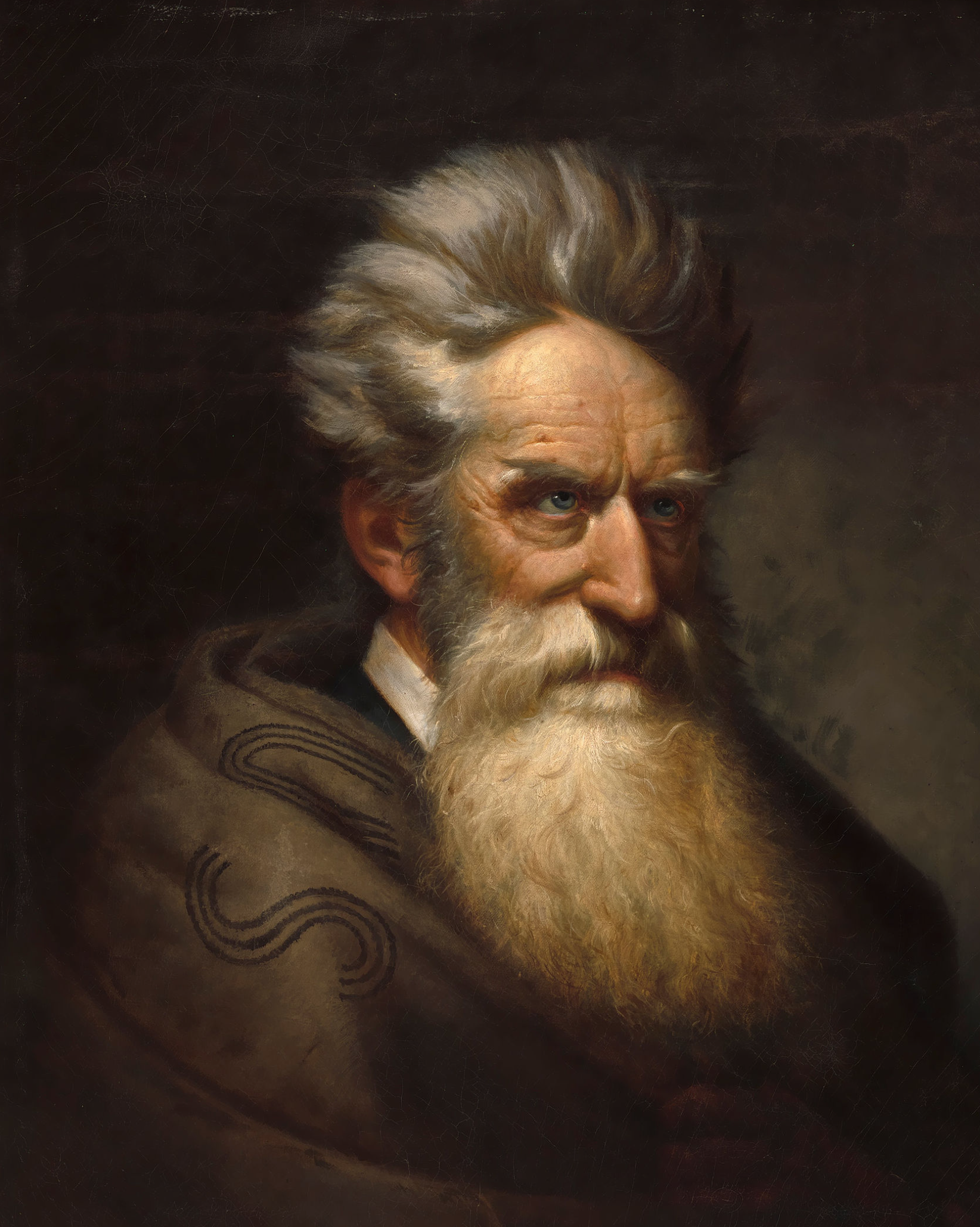 1859 John Brown leads ill-fated raid
1859 John Brown leads ill-fated raid
John Brown (1800-59) was a radical abolitionist who hoped to spark a rebellion among the slaves of America’s southern states. His attack on a federal arsenal that was to garner weapons for this rising failed and Brown was hanged for treason.
Brown was an unsuccessful farmer and businessman who once had plans to become a Congregationalist minister. In the late 1830s he became involved with the abolitionist movement and thus with the most pressing question in American politics: would the institution of slavery be preserved and even allowed to expand in the newly-settled territories of the West? He became increasingly convinced that the end of slavery could not be achieved peacefully and after the 1850 Fugitive Slave Act which made it illegal to aid runaway slaves even in free states Brown began to take direct action. He formed the League of Gileadites to deter the the return of escaped slaves and support the covert escape routes to Canada.
In 1855 Brown and some of his family moved to Kansas where abolitionist and pro-slavery forces were squaring off and where violence was being used to determine whether the territory would enter the Union as slave-holding or free. This “Bleeding Kansas” era pitted “Free-Staters” versus “Border Ruffians” with both sides forming militias to intimidate officials and voters; both sides imported heavily-armed supporters from beyond the borders of Kansas.
In May 1856 Brown’s men conducted the Pottawatomie Massacre in which five pro-slavery settlers were taken from their homes and murdered. This set off a series of raids and killings that focussed the nation’s attention on Kansas and Brown, who was now convinced that only a much bolder and more violent approach would achieve abolition. Returning to Massachusetts, he began to gather money and arms to spark a rebellion of slaves throughout the South.
This rising was to begin with an attack on a government armoury at Harpers Ferry, Virginia where Brown and his men would capture tens of thousands of weapons. They would then penetrate the slave states, distributing the arms to rebellious slaves whose defection would cause the collapse of the plantation economy and the end of slavery. Though the capture of the arsenal was easily achieved, the complex was quickly surrounded by outraged locals and American federal troops under Robert E. Lee. Fourteen men died before the raid was quashed.
John Brown’s trial was a media sensation. Though he and six others were hanged for their crimes, the raid was successful in polarizing the United States and convincing many in the North and South that only war would resolve the problem of slavery. Brown’s speech at the end of his trail reveals the religious underpinnings of his actions:
[H]ad I so interfered in behalf of the rich, the powerful, the intelligent, the so-called great, or in behalf of any of their friends, either father, mother, brother, sister, wife, or children, or any of that class, and suffered and sacrificed what I have in this interference, it would have been all right; and every man in this court would have deemed it an act worthy of reward rather than punishment. This court acknowledges, as I suppose, the validity of the law of God. I see a book kissed here which I suppose to be the Bible, or at least the New Testament. That teaches me that all things whatsoever I would that men should do to me, I should do even so to them. It teaches me, further, to “remember them that are in bonds, as bound with them.” I endeavored to act up to that instruction. I say, I am yet too young to understand that God is any respecter of persons. I believe that to have interfered as I have done as I have always freely admitted I have done in behalf of His despised poor, was not wrong, but right. Now, if it is deemed necessary that I should forfeit my life for the furtherance of the ends of justice, and mingle my blood further with the blood of my children and with the blood of millions in this slave country whose rights are disregarded by wicked, cruel, and unjust enactments, I submit; so let it be done!”
A year later southern states embarked on the path of secession and civil war which led to the death of 620,000 Americans and the end of slavery.